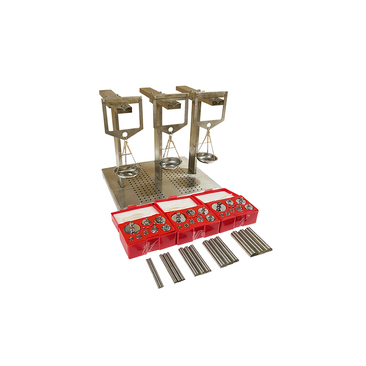Cable Thermal Expansion Testing Equipment and Solutions for Accurate Measurement and Performance Evaluation
Understanding Cable Thermal Elongation Testing Importance and Manufacturers
Cable thermal elongation testing is a crucial process in the manufacturing and quality assurance of electrical cables. It determines how much a cable will expand or contract when exposed to varying temperatures, which is essential for ensuring the reliability and safety of electrical systems. This testing becomes particularly significant in environments where temperatures can fluctuate significantly, impacting the cable's performance and longevity.
The Importance of Thermal Elongation Testing
As electrical cables are often exposed to extreme temperatures in industrial and outdoor settings, their ability to withstand thermal expansion and contraction is vital. Thermal elongation testing helps manufacturers understand the behavior of cable materials under heat, allowing them to design cables that can resist mechanical stress without losing functionality.
When cables are subjected to thermal stress, they can expand and contract, which might lead to insulation damage, connector failure, or circuit interruptions. Over time, these issues can result in significant failures, causing costly downtimes and potentially hazardous situations. By accurately measuring the elongation properties of various cable materials, manufacturers can preemptively address these risks, leading to more robust designs and improved overall safety.
The Testing Process
Typically, the thermal elongation test involves heating a sample of the cable material to a predetermined temperature and then measuring the extent of its elongation. Manufacturers may utilize various methods, such as a controlled heating oven or a thermal cycling chamber to observe the behavior of the cable under realistic conditions. The results provide data on the maximum elongation the cable can undergo without compromising its integrity, thus helping engineers to design safer and more durable cable products.
cable thermal elongation test manufacturer

Data gathered from these tests can be critical in meeting standards set by regulatory bodies. Compliance with these standards is often mandatory, ensuring that the cables used in electrical installations are tested rigorously and can withstand potential temperature-induced stresses throughout their service life.
Leading Manufacturers in Cable Thermal Elongation Testing
Many manufacturers specialize in providing relevant testing equipment and services for thermal elongation tests. Companies like INSTRON and ZwickRoell are known for their advanced testing machines that precisely measure elongation under controlled environmental conditions. They use cutting-edge technology to ensure accuracy and reliability in testing procedures, making them a preferred choice for many cable manufacturers.
Moreover, specialized testing laboratories, such as SGS and Intertek, also offer comprehensive testing services. These labs are equipped to conduct a wide range of tests, including thermal elongation, and provide certification for products, ensuring compliance with international standards. Their expertise helps manufacturers in various industries, including aerospace, automotive, and construction, to validate the performance of their cable products.
Conclusion
In conclusion, cable thermal elongation testing is essential for ensuring the reliability and safety of electrical systems. By accurately assessing how cables react to temperature changes, manufacturers can prevent potential failures and enhance the performance of their products. With the support of leading manufacturers and testing laboratories, the industry can continue to evolve, producing cables that meet the highest standards of safety and durability. As technology advances, we can expect even more refined testing methods and materials that push the boundaries of cable performance, ensuring that they are capable of meeting the challenges of modern electrical installations.
-
Why the Conductor Resistance Constant Temperature Measurement Machine Redefines Precision
NewsJun.20,2025
-
Reliable Testing Starts Here: Why the High Insulation Resistance Measuring Instrument Is a Must-Have
NewsJun.20,2025
-
Flexible Cable Flexing Test Equipment: The Precision Standard for Cable Durability and Performance Testing
NewsJun.20,2025
-
Digital Measurement Projector: Precision Visualization for Modern Manufacturing
NewsJun.20,2025
-
Computer Control Electronic Tensile Tester: Precision and Power for the Modern Metal Industry
NewsJun.20,2025
-
Cable Spark Tester: Your Ultimate Insulation Assurance for Wire and Cable Testing
NewsJun.20,2025
 Copyright © 2025 Hebei Fangyuan Instrument & Equipment Co.,Ltd. All Rights Reserved. Sitemap | Privacy Policy
Copyright © 2025 Hebei Fangyuan Instrument & Equipment Co.,Ltd. All Rights Reserved. Sitemap | Privacy Policy
